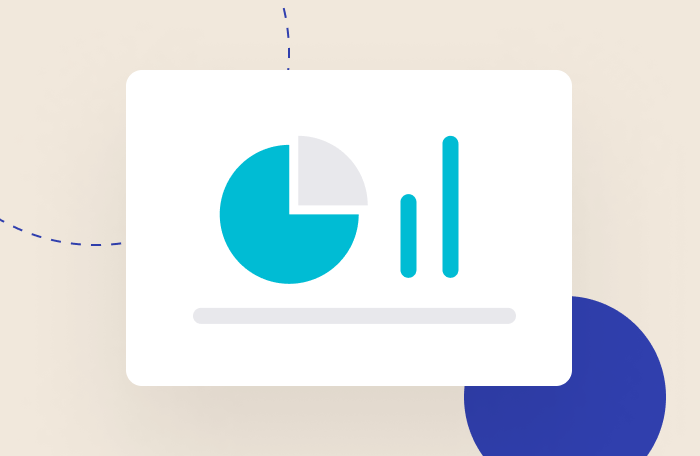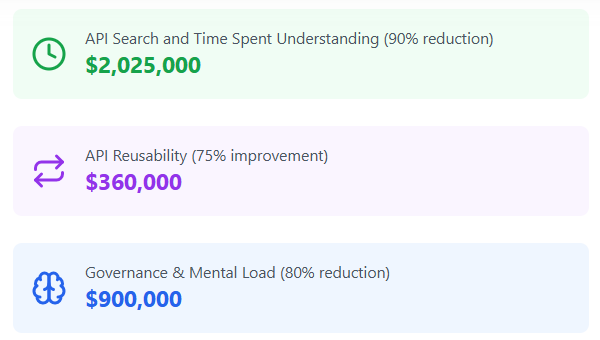API Marketplace vs Developer Portal Comparison
In the world of API management tooling, there are two common offerings to support the consumption stages of the API lifecycle. These are API marketplaces and API developer portals (also know as developer portals, devportals or API portals). Both are aimed at creating great user experiences for their audiences.
Both serve distinct purposes but share a common goal of enabling developers to access and utilize APIs effectively. In this blog post, we will delve into the definitions of these platforms and look at how they differ. We’ll also discuss their mutual pain points, along with how the next generation of offerings can help overcome these.
API Marketplace Definition
An API marketplace is an online platform that brings together API providers and API consumers.
API marketplaces come in different forms. External marketplaces are by far the most common. This functions as a hub where consuming developers can discover, explore, and consume APIs from multiple providers. Providers can monetize and sell their APIs from one central location.
Internal and partner marketplaces are two other types, but there is some concept overlap between these and developer portals.
Online marketplaces offer developers an easy way to locate and use pre-built APIs. This reduces the time and energy needed for the development process.
Best API Marketplaces
Some of the most popular API marketplaces are:
- Rapid API Hub
- APILayer
- AWS API Marketplace
- Celigo
- The ignite Customer Portal: a new type of API marketplace and developer portal that supports multiple consumption use cases across multiple API types, consumption use cases, and roles.
API Developer Portal Defined
API developer portals are dedicated websites or platforms created by API providers to cater specifically for developers.
A developer portal serves as a resource hub for an organization’s (or a team or line of business) APIs. It contains API documentation, guides, tutorials, and tools to help developers understand, access, and utilize their exposed APIs.
API portals focus on providing developers with all the necessary information and support they need to successfully integrate APIs into their projects. They often include interactive documentation, sample code, SDKs, sandbox environments, and community forums to foster collaboration and knowledge-sharing among developers.
Best Developer Portals
API developer portals are often built in house by the organization, although there are also some portal-as-a-service offerings. Here are some examples of good developer portals:
- Stripe Docs
- Visa Developer Center
- Twitter Developer Portal
- Goldman Sachs Developer
- The ignite Customer Portal can also be used as a next-gen devportal. It’s designed to be flexible enough to be used for any consumption use case.
Differences between API Marketplaces and API Developer Portals
The two have a key distinction. API marketplaces, especially external ones, offer APIs from multiple sources. On the other hand, developer portals are designed for a single API provider.
API marketplaces make it easy for developers to find, buy, and use APIs from various vendors. Developer portals, on the other hand, are designed to give a personalized experience to the API provider’s customers.
API marketplaces place more emphasis on API discovery. This makes it easier for developers to search, compare, and choose APIs based on their needs. Whereas developer portals concentrate primarily on providing the tools needed for developers to incorporate the APIs into their projects or applications.

Mutual Pain Points
While API marketplaces and API developer portals serve different purposes, they often encounter similar pain points:
- Content Quality and Freshness: Both platforms heavily rely on API documentation to educate and guide developers. Poorly structured or incomplete documentation can frustrate developers and impede the adoption of APIs. And, as the documentation has to be manually uploaded and maintained, this can be challenging for the API providers too.
- Developer Support: Effective and responsive developer support is crucial for both API marketplaces and API developer portals. Timely assistance, clear communication channels, and community engagement play a significant role in creating a positive developer experience. For example, update requests can often be siloed away from the place providers are curating and managing their APIs.
- Security and Compliance: APIs handle sensitive data, making security and compliance vital concerns. Ensuring robust security measures and good API governance are common challenges for both platforms.
- Versioning and Compatibility: APIs frequently undergo updates and improvements, especially in large enterprises. Maintaining backward compatibility and providing clear guidelines on versioning can be demanding for API providers on both API marketplaces and developer portals.
- Adoption and Integration: Encouraging developers to adopt and integrate APIs can be a shared pain point. The experience and APIs exposed need to be tailored for each type of consumer in the API ecosystem.
- Limited Audience: Both marketplaces and devportals are geared towards supporting developers. However, for a flourishing ecosystem that delivers the promised benefits of the API economy, other roles including business folk such as Product Managers should be enabled too.
- Vendor and Technical Lock-in: Increasingly, portals and marketplaces are offered by traditional API management platforms. This can limit them to one type of API e.g. RESTful OpenAPI and/or only including the APIs from one specific gateway.
Enter ignite’s Consumer Portal
The ignite Platform’s Consumer Portal is a new offering that’s the next generation of API portals and marketplaces. The Consumer Portal supports:
- All types and categories of APIs e.g. REST, SOAP, Async, Graph, and API product bundles.
- All types of consumption patterns e.g. internal, partner, external, region, and Line of Business (LOBs).
- APIs from any production environment and pipeline, as well as those that are still in-flight.
- Differentiated provider and consumer experience including collaboration between the two.
- Effective API governance, security, and curation through it’s connection to ignite’s Holistic Catalog and Optimized Lifecycle Support.
What’s more, your Consumer Portals are integrated with ignite’s Holistic API Catalog and Optimized Lifecycle support. This provides you with a tailored storefront (or multiple storefronts), backed by an effective supply chain for managing multiple API versions and the implications of multiple consumers adopting your APIs.
Here are 7 Things You Need to Know About ignite’s New Consumer Portal.
Conclusion
API marketplaces and API developer portals offer distinct approaches to facilitate API integration and collaboration. While API marketplaces focus on aggregating APIs from multiple providers, API developer portals cater to specific providers’ developer communities.
Despite their differences, both platforms face similar challenges such as documentation quality, developer support, security, versioning, and adoption. Recognizing these pain points and addressing them effectively can lead to a smoother and more successful API integration experience for developers, ultimately driving innovation and collaboration in the API ecosystem.
Differentiate Your Digital Enterprise Now
Learn how it can help your enterprise accelerate digital transformation





